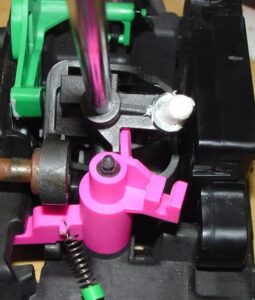How long do mower batteries last? This is a common question that many homeowners ask when it comes to maintaining their lawns. The good news is, there is a solution to this query that can help you better understand and plan for the lifespan of your mower battery. In this article, we will delve into the factors that influence battery longevity, provide useful tips to extend its lifespan, and offer insights on when it may be time to consider a replacement. So if you’re tired of wondering how long your mower battery will last, read on for some practical advice and answers to put your mind at ease.
How Long Do Mower Batteries Last?
When it comes to the lifespan of mower batteries, there are several factors to consider. Factors such as the type of battery, usage patterns, maintenance, and environmental conditions can all impact how long a mower battery will last. In this article, we will delve into these factors and provide you with a comprehensive understanding of the average lifespan of mower batteries.
The Different Types of Mower Batteries
Before we dive into the lifespan of mower batteries, it’s essential to understand the different types available on the market. The most common types of mower batteries are:
1. Lead-Acid Batteries
Lead-acid batteries have been widely used in mowers for many years. They are reliable, affordable, and have a decent lifespan. These batteries rely on a chemical reaction between lead and sulfuric acid to generate electricity. However, they require regular maintenance, including topping up the electrolyte levels and avoiding deep discharge cycles.
2. Lithium-Ion Batteries
Lithium-ion batteries have become increasingly popular due to their higher energy density, longer lifespan, and low maintenance requirements. These batteries are lightweight, eco-friendly, and provide consistent power output throughout their lifespan. They are more expensive upfront but can offer a better long-term value due to their durability.
3. Nickel-Cadmium (Ni-Cd) Batteries
Ni-Cd batteries were prevalent in the past but have largely been replaced by other battery types due to their lower energy density and environmental concerns regarding cadmium. They have a shorter lifespan compared to lead-acid and lithium-ion batteries.
Average Lifespan of Mower Batteries
Now that we’ve covered the different types of mower batteries, let’s explore their average lifespans.
1. Lead-Acid Batteries
Lead-acid batteries typically last between 3 to 5 years, depending on several factors such as maintenance, usage patterns, and environmental conditions. With proper care and maintenance, some lead-acid batteries may even last up to 7 years. However, it’s essential to note that deep discharges and failure to recharge promptly can significantly shorten their lifespan.
2. Lithium-Ion Batteries
Lithium-ion batteries generally have a longer lifespan compared to lead-acid batteries. On average, they can last anywhere between 5 to 10 years. Their lifespan can be extended further by following proper charging and storage practices. Unlike lead-acid batteries, lithium-ion batteries do not require frequent maintenance, making them a convenient option for many users.
3. Nickel-Cadmium (Ni-Cd) Batteries
Ni-Cd batteries have a relatively shorter lifespan compared to lead-acid and lithium-ion batteries. On average, they typically last between 2 to 5 years, depending on usage patterns and maintenance. However, due to their environmental concerns, they are less commonly used in modern mower models.
Factors Affecting Mower Battery Lifespan
While the average lifespan of mower batteries varies depending on the type of battery, several factors can significantly influence their longevity. Let’s take a closer look at these factors:
1. Maintenance
Proper maintenance is crucial for extending the lifespan of a mower battery. Regularly checking the electrolyte levels (for lead-acid batteries), cleaning the terminals, and ensuring a clean and dry storage environment can all contribute to a longer battery life.
2. Usage Patterns
The frequency and duration of mower usage can impact battery life. If you frequently use your mower for extended periods or engage in heavy-duty tasks, the battery will experience more strain and may require replacement sooner. On the other hand, occasional light usage may prolong the battery’s lifespan.
3. Charging Practices
Following the recommended charging practices for your specific battery type is crucial. Overcharging, undercharging, or exposing the battery to extreme temperatures can all shorten its lifespan. It’s essential to refer to the manufacturer’s instructions and guidelines for optimal charging practices.
4. Environmental Conditions
Extreme temperatures, both hot and cold, can affect battery performance and lifespan. High temperatures can accelerate chemical reactions and lead to faster battery degradation. Similarly, extremely low temperatures can reduce overall battery capacity. Storing your mower in a cool, dry place when not in use can help mitigate the impact of temperature extremes.
Prolonging Mower Battery Lifespan
While the lifespan of mower batteries is influenced by various factors, there are steps you can take to maximize their longevity. Here are some tips to help prolong your mower battery’s lifespan:
1. Regular Maintenance
Ensure the battery terminals are clean and free from corrosion. Clean them periodically using a mixture of baking soda and water. Additionally, keep the battery vent caps clean and check the electrolyte levels (for lead-acid batteries) regularly.
2. Proper Charging
Follow the charging guidelines provided by the manufacturer. Avoid overcharging or undercharging the battery, as this can negatively impact its lifespan. If you’re using a lithium-ion battery, avoid charging it to 100% capacity frequently, as this can contribute to a faster degradation of the battery.
3. Avoid Deep Discharges
Try to avoid completely discharging the battery before recharging it. Deep discharges can strain the battery and reduce its overall lifespan. Instead, aim to recharge the battery when it reaches around 20-30% capacity.
4. Store in a Suitable Environment
When storing your mower during the off-season or for an extended period, ensure it is stored in a cool, dry place. Extreme temperatures can have a detrimental effect on the battery’s performance and overall lifespan.
5. Follow Manufacturer Recommendations
Always refer to the manufacturer’s guidelines and instructions for optimal battery usage and maintenance practices. They will provide specific recommendations tailored to your mower’s battery type.
By implementing these tips, you can significantly extend the lifespan of your mower battery and maximize its performance.
In conclusion, the lifespan of a mower battery can vary depending on factors such as the type of battery, maintenance, usage patterns, and environmental conditions. Lead-acid batteries typically last between 3 to 5 years, while lithium-ion batteries can last between 5 to 10 years. Nickel-cadmium batteries have a shorter lifespan of around 2 to 5 years. However, proper maintenance, charging practices, and usage patterns can help maximize the longevity of your mower battery. By following the manufacturer’s recommendations and implementing the tips mentioned in this article, you can ensure that your mower battery lasts as long as possible, providing reliable power for your lawn care needs.
Frequently Asked Questions
How long does a mower battery typically last?
The lifespan of a mower battery can vary depending on several factors, such as the type of battery, usage patterns, and maintenance. However, on average, a quality mower battery can last anywhere from 3 to 5 years.
What can affect the lifespan of a mower battery?
Several factors can impact the lifespan of a mower battery. These include:
- Frequency and duration of use
- Proper maintenance and care
- Environmental conditions, such as temperature and humidity
- Quality and brand of the battery
How can I extend the life of my mower battery?
To extend the life of your mower battery, consider the following tips:
- Follow the manufacturer’s instructions for charging and storage
- Avoid overcharging or completely draining the battery
- Keep the battery clean and free from debris
- Store the battery in a cool, dry place when not in use
When should I replace my mower battery?
There are a few signs that indicate it may be time to replace your mower battery:
- The battery no longer holds a charge
- Reduced runtime or power compared to when it was new
- Frequent need for recharging
- Physical damage or visible signs of deterioration
Can I replace my mower battery myself?
Yes, in most cases, you can replace your mower battery yourself. However, it’s important to consult your mower’s user manual for specific instructions and safety precautions. If you’re unsure or uncomfortable with the process, it’s recommended to seek professional assistance.
Final Thoughts
Mower batteries have varying lifespans depending on several factors. On average, a mower battery can last anywhere from 3 to 5 years with proper maintenance and usage. Factors such as the type of battery, frequency of use, and storage conditions can affect its lifespan. It is essential to follow manufacturer guidelines for charging and storing the battery to maximize its longevity. Regular maintenance, including cleaning terminals and ensuring proper ventilation, can also help prolong its life. By understanding these factors and taking appropriate care, you can enjoy the benefits of a mower battery for an extended period. So, how long do mower batteries last? It depends, but with proper care, they can provide years of reliable service.



